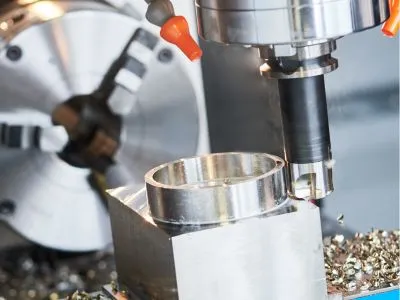Prototyping vs Machining
 CNC (Computer Numerical Control) machining and prototyping are both critical components of modern manufacturing processes. While they share some similarities, their roles within the production cycle differ significantly.
CNC (Computer Numerical Control) machining and prototyping are both critical components of modern manufacturing processes. While they share some similarities, their roles within the production cycle differ significantly.
CNC machining employs advanced computer systems to control machine tools, creating precise and repeatable parts for a variety of industries. It excels in delivering high-quality finishes and is suitable for both prototyping and mass production.
In contrast, prototyping focuses on building prototypes to evaluate designs before committing to full-scale production. This process facilitates rapid iteration based on user feedback, making it perfect for early-stage product development and low-volume runs.
Although CNC machining can incorporate prototyping steps, the two remain distinct approaches. Depending on your goals, one might be preferable over the other. So, how do you decide between prototyping and CNC machining? Let’s explore each option in detail:
Understanding CNC Prototyping
CNC prototyping leverages computer-controlled machines to carve out prototypes directly from solid materials such as plastics or metals. By identifying potential design flaws early, this method proves highly advantageous, especially for startups or companies looking to minimize costs while testing concepts. The ability to work with multiple materials further enhances its flexibility, allowing for drilling, milling, grinding, and turning operations.
One major benefit of CNC prototyping is its role in accelerating product development timelines without sacrificing quality. For instance, businesses can quickly adapt their designs based on initial feedback, ensuring smoother transitions into larger-scale productions later.
Delving Into CNC Machining
CNC machining centers around using pre-programmed instructions to guide mechanical equipment during manufacturing tasks. Unlike traditional manual methods, CNC machining offers unparalleled precision, consistency, and efficiency. Once a 2D or 3D model has been designed using CAD software, it gets translated into G-code—a universal programming language understood by CNC machines.
Operators typically run trial runs to verify program accuracy before executing them on actual workpieces. This precaution ensures optimal performance while minimizing waste due to errors. Furthermore, CNC machining supports diverse materials including aluminum, steel, titanium, and even exotic alloys, making it invaluable across numerous sectors.
Choosing Between Prototyping And Machining
Deciding whether to opt for prototyping or machining ultimately depends on specific project requirements. If your primary objective revolves around exploring new ideas or validating hypotheses prior to scaling up operations, then prototyping presents itself as the logical choice. It enables quick adjustments based on real-world usage scenarios, helping refine final outputs before entering mass production stages.
Conversely, if your aim involves producing large quantities of identical items consistently over time, CNC machining becomes indispensable. Its capacity to maintain strict tolerances combined with rapid throughput rates makes it ideal for fulfilling demanding industrial demands. Additionally, since CNC machines handle complex geometries effortlessly, they open doors for innovation beyond conventional limitations.
Why Partner With Cheetah Precision?
At Cheetah Precision, we pride ourselves on offering comprehensive solutions tailored specifically towards meeting our clients' unique needs related to machining and prototyping services. Our team specializes in state-of-the-art technologies including 5-axis/vertical/horizontal CNC milling, lathe turning, and Swiss-style manufacturing techniques.
Whether you're embarking on groundbreaking research initiatives or scaling existing ventures smoothly forward, rest assured knowing that we have everything needed right here under one roof. Contact us today at [phone number] or visit our website www.cheetahprecision.com to request a personalized consultation regarding your upcoming projects!
skeletal truck body,Skel Trailer,40ft Tri Axle Skel Trailer
Shandong Tenda Vehicle Co. LTD , https://www.tendavehicle.com